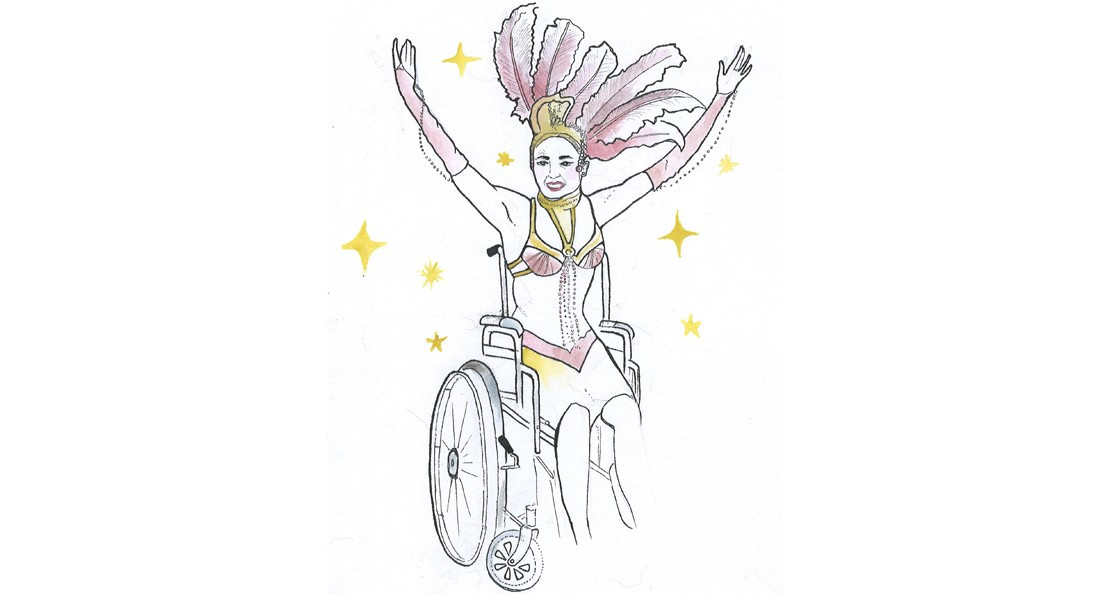Theatre company Sick + Twisted explores intimacy as activism
“If nobody with a disability is onstage, we aren’t actually telling the truth”
What is disability? Put differently, and with a wink to theatrical tradition, "lame is ... ?"
Winnipeg theatre company Sick + Twisted, who are producing the second -annual Lame Is... Disability Cabaret Sept. 14 and 15 at the University of Winnipeg Asper Centre for Theatre and Film, believe that it’s time for people with disabilities to take centre stage in answering this question.
“So much representation of disability, historically, has been from the perspective of able-bodied people for the consumption of able-bodied people,” Sick + Twisted artistic director Debbie Patterson says.
“We really do need to hear the voice of people with disabilities defining what it means to live with a disability ... If nobody with a disability is onstage, we aren’t actually telling the truth.”
Patterson says the way theatre is made has often made it impossible for people with disabilities to participate.
“The ‘show must go on’ mentality means that actors have to deny the truth of their human vulnerabilities in order to do the job, which is ... the foundation of ableism: the denial of our frailty, of our weakness, of our vulnerability and the expectation that we will use our will to override the demands of our bodies.”
Sick + Twisted has spent the last two years creating theatrical performances centring the lived experience of people with disabilities. Shows include the dance-theatre end-of-life meditation How It Ends, a tour of Patterson’s one-person show Sargent and Victor and Me and a secret new production at the West End Cultural Centre next February, which will be announced at the cabaret.
For Patterson, making work about disability is ultimately a way to talk about the human condition. As artists in the cabaret develop their pieces, Patterson asks that they use their disability as the starting point, not the destination of artistic inquiry.
“What they have to do is think about what they know about being human that they have learned through their disability that they can share with an audience,” she says.
Long-time disability rights activist and first-time cabaret participant Jim Derksen believes that this approach can transform society.
Theatre "has a way of re-engineering (an audience’s) imaginative ability to accept people with disabilities that I think is more effective, more to the heart of the matter than changing laws and regulations,” he says
Derksen says that while transforming infrastructure is important, fear continues to push people with disabilities to the margins, manifesting in anything from ableist employment policies to unspoken taboos against sexual intimacy with people with disabilities.
“You can’t get at that by rewriting the Human Rights Code,” he says.
For Patterson, this is where theatre comes in.
“The reason I work in theatre is because of the intimacy of it, because we’re all in the same room breathing the same air ... Disability is about our bodies, so we have to have our bodies in the room together.”
For Sick + Twisted, intimacy is a form of activism.
Breathe the same air as Sick+Twisted from Sept. 14 to 15 at their Lame Is... Disability Cabaret at the University of Winnipeg Asper Centre for Theatre and Film. Student/disabled/unemployed tickets are $15, otherwise tickets are $20.
Published in Volume 73, Number 2 of The Uniter (September 13, 2018)








